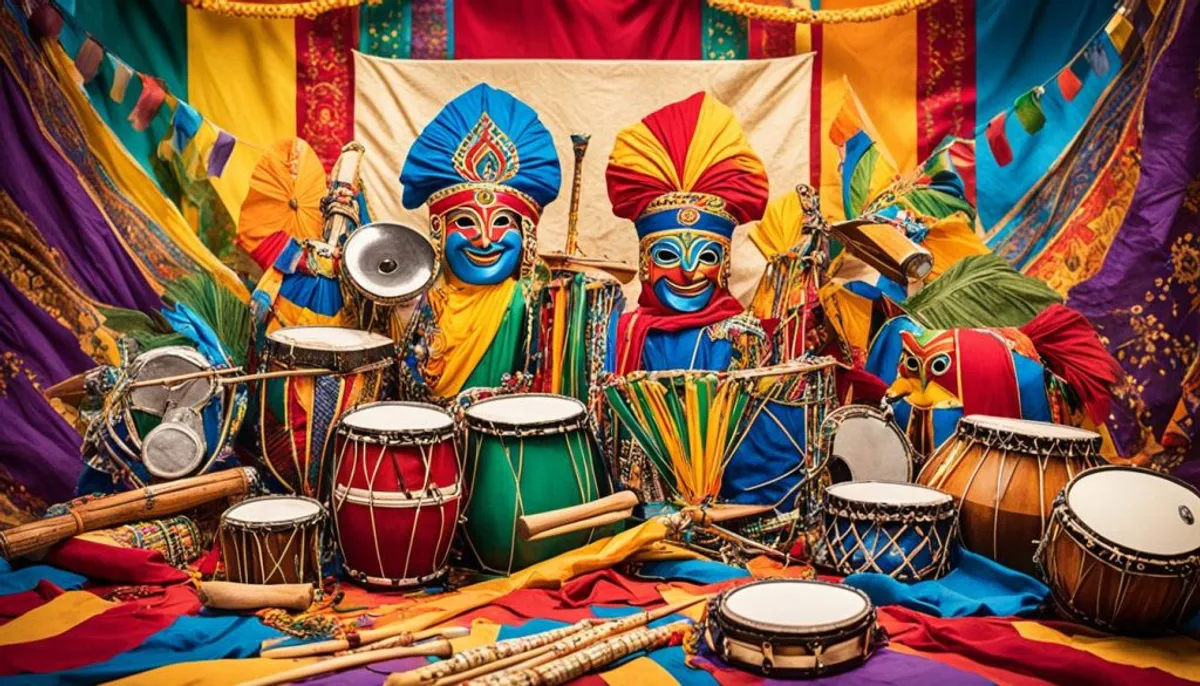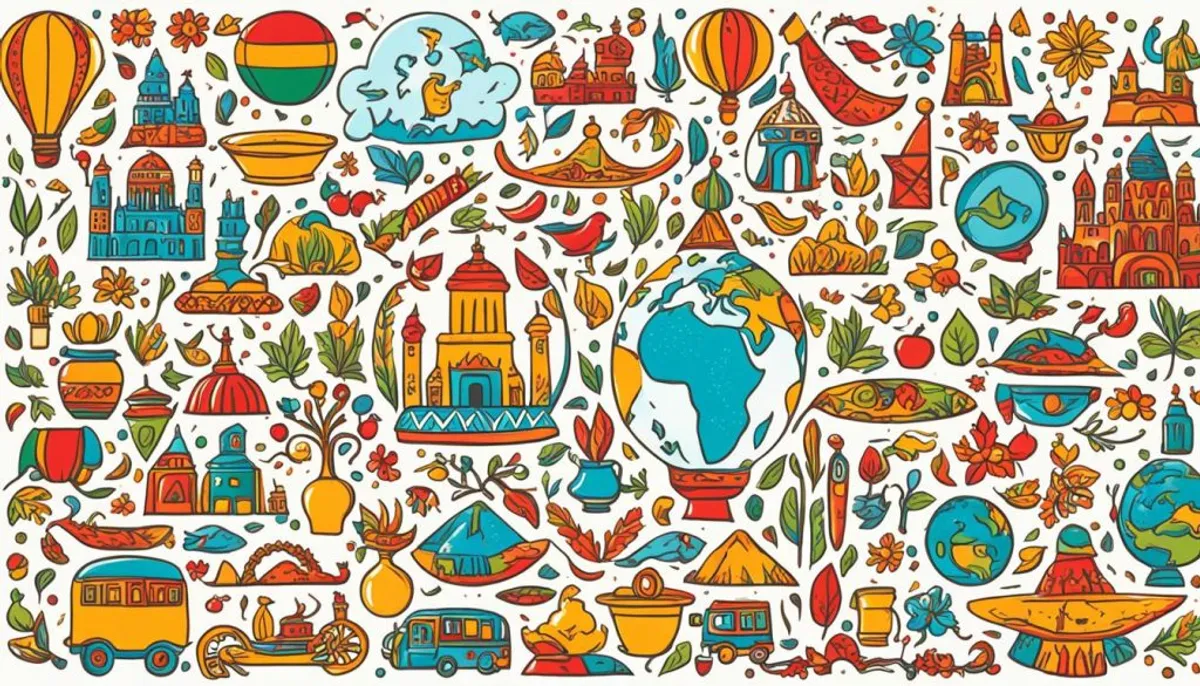The culture is everywhere in our daily lives. It touches many areas, such as cultural activities. It is crucial for our society.
The culture is the sum of the traits that make us who we are. This includes our beliefs, traditions, and values. It helps us understand our society and connect with others.
The culture is essential for a dynamic society. It allows us to share our history, have fun, and imagine the future. It changes all the time and is passed down from generation to generation.
The culture is also a moment of sharing. It helps us feel connected and understand the world around us.

The role of culture in society
The culture is very important to us. It is the set of distinctive, spiritual and material, intellectual and emotional traits that define a society or a group. The culture is more than just a heritage. It is essential for a dynamic and evolving society.
Definition of culture
The culture helps us tell our stories and entertain ourselves. It reminds us of the past and helps us imagine the future. The culture evolves through exchanges and intercultural dialogues.
Culture, a vital element of a dynamic society
The culture is a vector of education and learning. It aids in educational success by developing critical thinking. It also improves learning processes and promotes the development of physical or intellectual capacities. This contributes to well-being and social cohesion.
| Element | Role of culture |
|---|---|
| Education and learning | Vector of educational success, development of critical thinking skills, improvement of learning processes |
| Individual development | Promotes the development of physical and intellectual capacities, contributes to well-being |
| Social cohesion | Factor of cohesion within communities |
The importance of cultural activities
Cultural activities are crucial for our society. They go beyond visiting museums or monuments. They offer a variety of enriching experiences. These activities positively influence personal development, education, and well-being.
The different types of cultural activities
There are many forms of cultural activities, such as:
- Visiting museums, castles, parks, and gardens to discover cultural heritage
- Attending artistic performances such as concerts, theater, or ballet
- Participating in creative workshops, cooking or dance classes
- Discovering local traditions and cultural festivals
The benefits of cultural activities
Cultural activities offer many advantages:
- Development of critical thinking and creativity: They stimulate our curiosity and reflection, helping us better understand the world.
- Improvement of well-being and health: They reduce stress, encourage empathy, and strengthen social ties.
- Enhancement of education and learning: They are essential for transmitting knowledge and understanding our cultural heritage.
In conclusion, cultural activities are much more than mere entertainment. They are a means of developing the self, strengthening the community, and promoting well-being.

why culture
Culture is essential for our education and learning. It helps us think critically, express our emotions, and find our identity. The role of culture is fundamental in this process.
Culture, a vector of education and learning
From a young age, culture helps us succeed in school. It develops our capacity for reflection and analysis. It also teaches us to express our thoughts and understand history.
Cultural heritage opens new horizons for us. It enriches our education and learning throughout life.
Culture, a factor of well-being and health
Studies show that creativity and cultural engagement improve our health. Culture is increasingly linked to healthcare, as seen in the UK and Canada.
It combats isolation, creates identity, and fosters understanding between cultures. This is important for First Nations, Métis, and Inuit.

In summary, culture is crucial for our education, our learning, and our well-being. It aids in our educational success and our health. It also strengthens social cohesion.
The cultural impact on communities
Culture is crucial for building social capital and encouraging social cohesion in communities. Cultural events such as festivals and fairs help bring people together. This creates solidarity and facilitates social integration.
These activities also strengthen the empowerment of communities. They develop their capabilities and increase their citizen pride and tolerance.
Culture, the glue of social cohesion
Participation in cultural activities strengthens social capital. Culture becomes a factor of gathering. This creates social ties and improves social cohesion.
Cultural heritage, a factor of belonging
Our cultural heritage tells our story. It strengthens our sense of belonging. Studies show that streets with heritage character enhance the sense of community.
They offer a better quality of life and a pride. They reinforce identification with the past and belonging to a broader community. The cultural heritage also supports tourism and the preservation of farms.
Conclusion
The culture is everywhere in our daily lives. It is essential for our society. It encompasses the spiritual, material, intellectual and emotional traits that define a society or group.
Cultural activities enrich our personal lives. They promote contact between people. They bring benefits for education, well-being, and health.
Culture influences social cohesion and the sense of belonging. It is a valuable resource that we must protect and promote.
In summary, culture is crucial for our society. It shapes our identity, our traditions, and our dreams. We must cultivate and pass it on to enrich our collective and individual lives.
RelatedRelated articles


